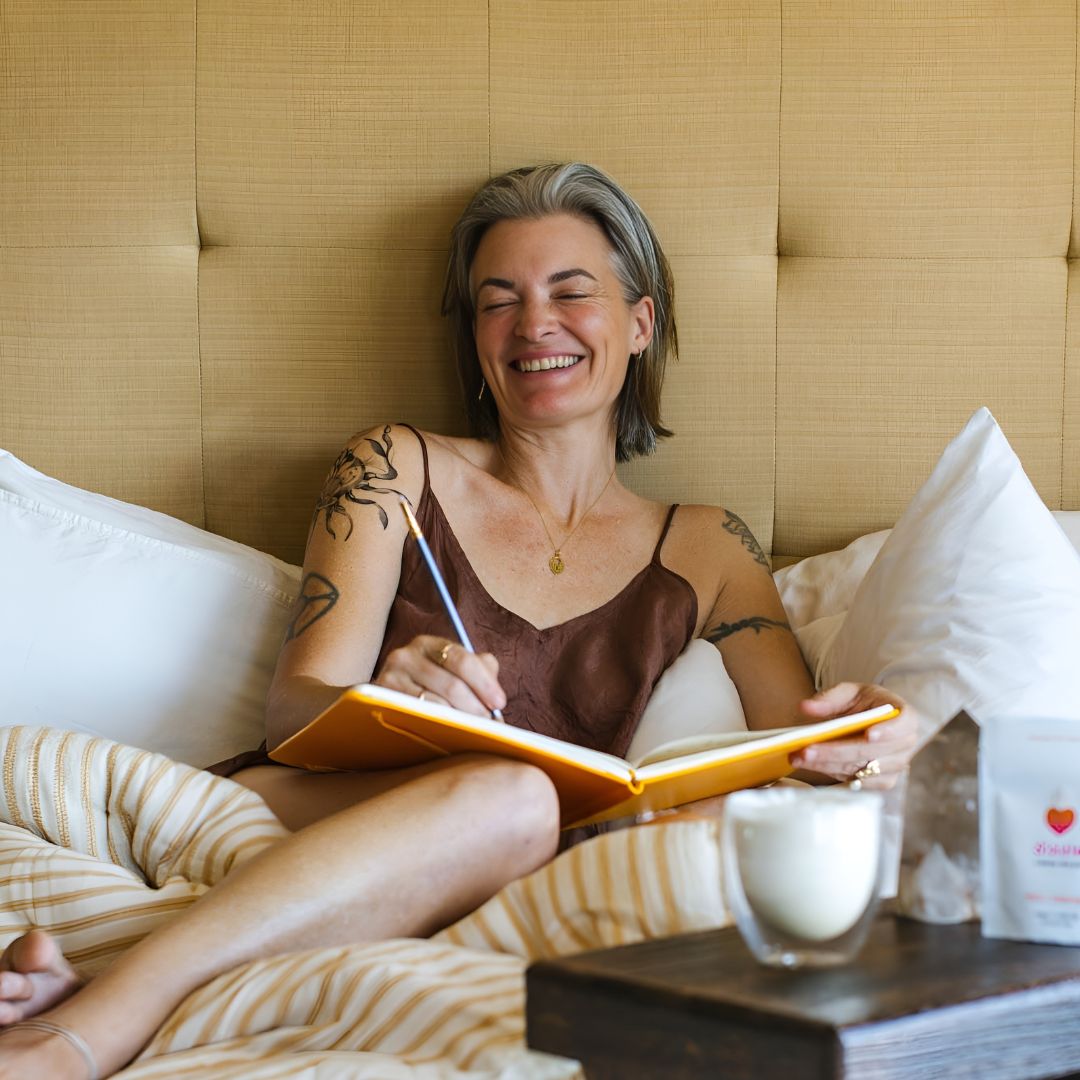Before perimenopause, we have go-to relaxation methods that help us unwind and de-stress. As you may already know—or are just beginning to experience—everything can and will change as you enter menopause. One day, a trusted relaxation technique does the job, and the next, it doesn't. The physical and emotional changes during this time can alter how we experience stress and then how to relax about it. Let’s talk about some common ways we relax and explore why these methods might not work for menopausal women—and talk about what alternatives can make a real difference.
A Glass of Wine
The Reality:
A glass of wine (or two) might seem like a great way to unwind, it can actually make menopausal symptoms worse. Alcohol can disrupt sleep patterns, trigger hot flashes, and increase anxiety.
Alternative:
Try herbal teas such as chamomile or valerian root. These can promote relaxation and better sleep. Transition with a mocktail.
A Long, Hot Bath Will Always Soothe
The Reality:
Hot baths are often recommended for relaxation, but for menopausal women, they can sometimes worsen symptoms like hot flashes and night sweats.
Effective Alternative:
Opt for a less warm bath. Dare we say lukewarm. Try some Epsom salts and essential oils like lavender. This can help relax muscles and calm the mind without raising your body temperature.
Intense Exercise is the Best Stress Reliever
The Reality:
While exercise is beneficial, intense workouts can increase cortisol levels, leading to more stress rather than less. Increased cortisol levels can increase symptoms like anxiety, fatigue, and weight gain - plus it disrupts sleep.
Alternative:
Incorporate gentle activities like yoga, walking, or tai chi. These forms of exercise can reduce stress hormones and improve overall well-being without putting extra strain on the body.
Meditation is One-Size-Fits-All
The Reality:
Meditation is a powerful tool, but traditional methods can be challenging for those experiencing menopausal symptoms like anxiety and restlessness.
Effective Alternative:
Experiment with guided meditations or mindfulness practices that focus on breathing and gentle body awareness.
Remember, relaxation isn't just about reducing stress; it's about nurturing your body and mind in ways that support your health and happiness during this phase of life. Stay curious and experiment. This is where I hear my mothers voice saying “patience is a virtue”. In this case and in many others she is right.
